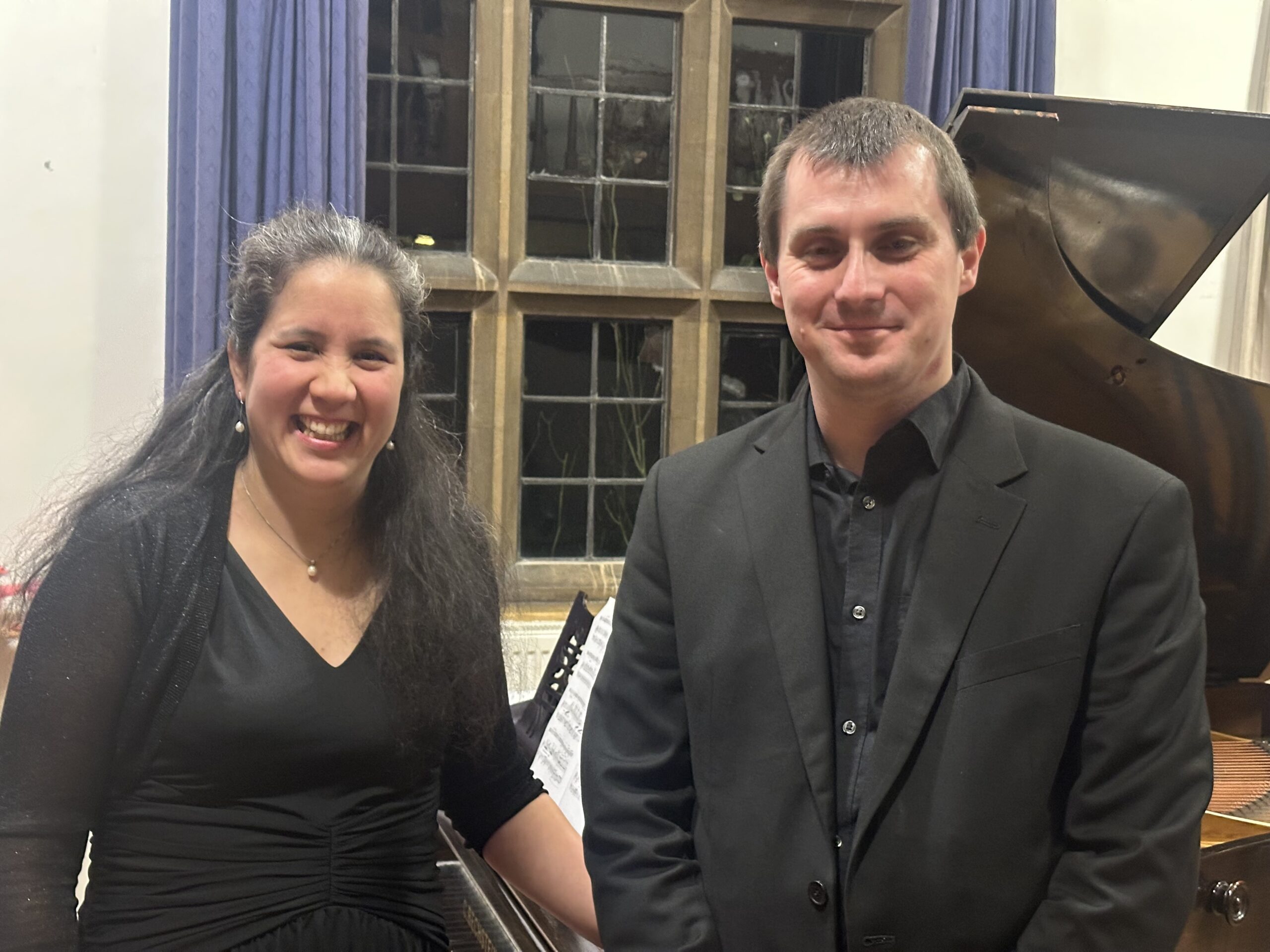Review of piano and viola recital.
Lynn Arnold and Peter Mallinson delivered a delightful and varied programme on piano and viola at Howgills on 13th November 2024.
It might be more normal to say “programme for piano and viola” but such is the Cinderella status of the viola that of necessity more than one item was an arrangement of a violin piece. But none the worse for that.
The wonderful Bach sonata with which they started was stylistically familiar territory, but several of the items that followed were by unfamiliar composers: a lovely Romance by Amy Beach, an Elegy by James Friskin, and two sublime “Songs” by Percy Hilder Miles, which echoed this season of remembrance. Each half of the concert finished with a stunning show piece, by Vadim Borisovsky and Kai Mortensen respectively.
For those of us already familiar with the Franck Violin Sonata, it was a positive experience to hear some parts of the solo at a new pitch and to have our concentration focussed by the new sonorities afforded by the viola. The Allegro Molto was breathtaking; the Recitativo-Fantasia by turns poised, intense, dramatic and magical, and the famous canon in the last movement a delight that capped the earlier movements, all of which earned a storm of applause.
The items were charmingly introduced: not a trivial comment, since an articulate (and sometimes humorous) introduction can help sharpen the concentration of the listeners, especially when the music is unfamiliar.
This was an engaging and stunningly accomplished performance, which left a happy buzz in the room after the final item.
Clifton Hughes

